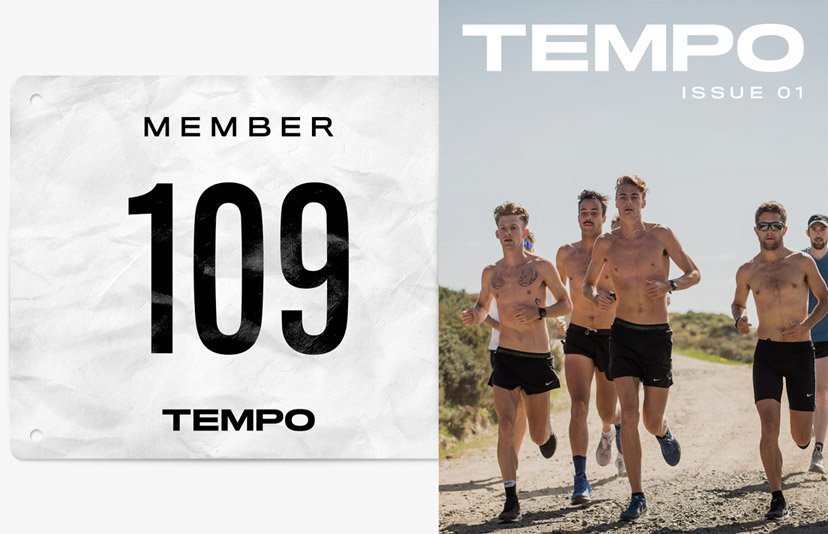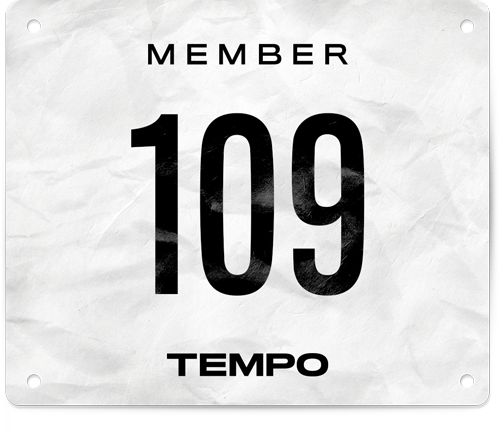Culture
Miles are Mental
how running can improve mental health for everyone, not just those currently suffering.
Editor's Note: Lydia O'Donnell is a familiar name for TEMPO readers. Not only did Lydia captain our record breaking team at The Speed Project in 2019, she's an elite marathon runner from New Zealand who finished 20th at the New York Marathon in 2018.
On top of this, Lydia is a multiple national champion on the track, co-founder of mental health run club One Step, and a run coach.
Lydia is a columnist for TEMPO - you can read her last article, about her race at Gold Coast Marathon, here.
You can connect with Lydia here.
Running is mental. It is a physical act – one foot in front of the other – but it is completely mental. It takes a strong mind to want to push through the pain of having tired legs and a heaving heart. It is the mind which provides the determination to run, therefore our mental health should be at the forefront when assessing what we get out of the sport.
Running for me has always been a medicine for my mind. Growing up in a house where depression and anxiety were evident daily, running became not only my escape, but I believe it also became my saviour. Seeing first-hand the effects that depression can have on someone, and knowing too well that genetics can be a factor in depression, even at a young age I became aware that to stay mentally healthy and create a purpose for myself I needed to keep my sport close to my heart.
Growing up, we’re taught that our genetics, as well as whatever happens to us when we’re young (our environment), moulds us into the adults we become. But what we don’t always realize is there are positive actions and steps we can take to influence our mental health, even when we are faced with life’s struggles. More often than not, we can choose to put ourselves in different environments, and these environments can provide us with community, connection, and purpose – all having a huge impact on our mental health.
Depression and anxiety is the leading cause of disability worldwide, and over 300 million people are affected by it. It is a mental illness that is growing partly due to the high-pressured, fast-paced, social-media fuelled world we live in. And it is one that to an extent could be prevented in many cases by providing people with a purpose, a community and connection to others. All three things that you can get by throwing yourself into the world of running.
Through running I have watched people grow from self-doubting, self-conscious, and anxious human beings into confident and radiant athletes. Athletes who continually set goals, are pushing their limits, and achieving things that before they ran, they never thought were possible. The relationships that have been built through the runners simply opening their minds up to the sport are the relationships that have saved lives.
In 2017 I co-founded a movement called One Step, to raise awareness of anxiety and depression and spread the simple message of how important movement, in particular running, is for our own mental health.
One Step began in Auckland as a small group of people coming together to discuss feelings, emotions, and of course to exercise. Slowly it began to grow, to the point where people around the world were reaching out wanting to be in on the movement. There are now 17 communities across the world coming together weekly to spread the message and connect people from all walks of life. Many of these people are struggling with, or have struggled with mental illness, and others simply want to prehab their minds knowing all too well how running can benefit overall health.
In November 2018 a new face showed up to our community in Auckland. From the outside her face was warm and radiant, but the deeper you looked into her eyes, there was an underlying sense of sadness and emptiness within. Immediately I knew this girl needed help, be that a hug, a hand, or just someone to tell her that everything was going to be okay. I spent the entire session walking laps of the park with her - having never really run before, walking was the most achievable form of movement for her at the time. As we walked, she opened up to me and told me her story, and it was clear she was affected by a deep depression. Holding back my tears, I realized that the fact this young woman was up early, had the courage to join us at One Step alone and was prepared to reach out, meant she was willing to be helped.
I offered to write her a plan - nothing serious, just a beginner running plan to get her into the routine of regular training. She surprisingly jumped at the idea of becoming a runner and committed herself to that plan. She ran every few days, created a purpose for her being and looked forward to her progression as an athlete. Fast forward 6 months and her entire perspective has changed. She has found a new job, moved cities, created new relationships and recently ran her first half marathon! This is the pot of gold that proves to me that the gift of running is so much more than winning medals and smashing PBs. Sometimes it is the fact that it can ultimately save lives.
I don’t claim that running is the answer to our mental health statistics around the world. I don’t claim that we don’t need doctors and medication to help those that are suffering. I just want to show people that there are steps that you can take to put yourself in control. Exercise is a way to clarify your thoughts and calm your feelings. Whether depression is in your genetics, or you’re facing tough personal circumstances, running is always a tool for you, and there are a number of running communities worldwide willing to help.
For those who may take their running more seriously, remember that no matter what platform you are on, digital or not, you have the ability to inspire others, to support those in need and to help lead them to the light of running. Let’s take these opportunities to motivate others to run and do so by sharing our stories on the way the sport has helped our own mental health. By breaking the barrier that being a ‘runner’ is all about fitness, speed and competition, we can inspire others to take up the sport purely for the health of their own minds. Purely to be connected and confident in who they are as people.
Connection is the desire to feel valued and purpose is the drive to be alive. Happiness can be in your control.


